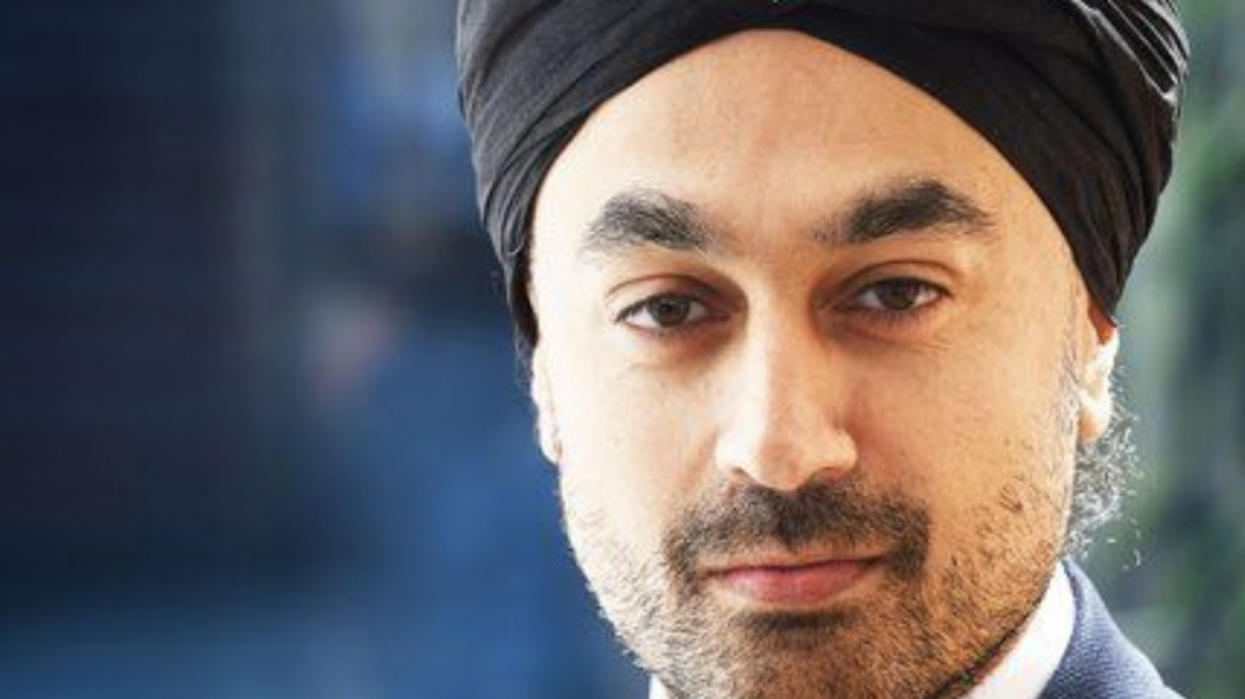IN A LEGAL career spanning over three decades, Justice Pushpinder Saini, a High Court judge of the King’s Bench Division, has emerged as a formidable figure in the British judiciary.
His judgments often reflect a deep understanding of the delicate balance between law and liberty, making him an influential voice in the legal world.
One such moment came in April last year, when he dismissed a controversial case against Trudi Warner, a 69-year-old climate activist, who had been charged with contempt of court for holding a placard outside Inner London Crown Court.
The placard, which read, “You have an absolute right to acquit a defendant according to your conscience,” was a bold reminder to jurors of their rights. The prosecution argued that Warner’s protest – at the start of a trial of Insulate Britain protesters, before a judge who had barred defendants from mentioning climate change in front of a jury – was an attempt to influence jurors “in a particular way,” undermining public confidence in the jury system.
But Justice Saini saw it differently. In his ruling, he declared that prosecuting Warner was a “disproportionate approach” that unlawfully interfered with her right to freedom of expression.
“It is fanciful to suggest that Ms Warner’s behaviour falls into the category of contempt,” he said, adding: “I reject the arguments made in the claimant’s … argument that Ms Warner confronted jurors … these submissions significantly mischaracterise the evidence.”
In the ruling, Saini said there was a well-established principle in law of jury equity – the power of the jury to give a verdict according to conscience – noting that the principle had been tested in the highest courts in England and Wales, and existed in other countries such as Canada, New Zealand and the US.
His decision was not just a legal victory for Warner; it was a powerful statement about the importance of free speech in a democratic society. The ruling resonated far beyond the courtroom, sparking debates about the limits of judicial authority and the role of protest in a functioning democracy.
Justice Saini’s journey to the bench is as remarkable as his judgments. Called to the Bar in 1991 at Gray’s Inn, he spent 28 years at Blackstone Chambers in London, specialising in commercial law, public law, human rights, and media and entertainment law. He has served as counsel on landmark human rights cases in domestic courts, the European Court of Justice in Luxembourg, and the European Court of Human Rights in Strasbourg.
One of his most notable cases was Smith and others v Ministry of Defence, a landmark Court of Appeal decision that addressed the territorial scope of the Human Rights Act 1998 concerning British service personnel killed in Iraq. The Supreme Court’s unanimous ruling, which held that the deceased soldiers were under the UK’s jurisdiction at the time of their deaths, was a significant victory for human rights and set a precedent for future cases involving military operations abroad.
His work also included representing the UK government in Strasbourg and the Cyprus government in a long-running inter-state litigation against Turkey.
Justice Saini’s practising career is studded with high-profile cases that have captured public attention. In 2009, he represented the Indian Premier League (IPL) in its first prosecution of a cricketer for an anti-doping offence, resulting in a one-year ban for former Pakistan fast bowler Mohammed Asif. His client list reads like a who’s who of the entertainment and sports world, including Michael Jackson, Pink Floyd, Simon Cowell, Queen guitarist Brian May, and footballer Nicolas Anelka.
Appointed as a High Court judge in 2019, Saini has delivered several groundbreaking judgments. One such case involved the tragic death of Harry Dunn, a teenager killed in a road crash outside the US military base RAF Croughton in Northamptonshire.
The suspect, Anne Sacoolas, the wife of a US official, claimed diplomatic immunity, sparking a diplomatic row between the UK and the US. A division bench consisting of Saini ruled in favour of Sacoolas, but she was later volunteered to be prosecuted.
In December 2021, he was part of the bench that rejected India’s appeal to extradite Kuldeep Singh, a senior member of a banned Sikh organisation. The court upheld the magistrates’ decision, ruling that extradition would violate the European Convention on Human Rights.
Last year, he allowed arms dealer Sanjay Bhandari, who is wanted in India for tax evasion and money laundering, to appeal against his extradition order by a London court, granting the permission to appeal on grounds covering human rights issues, reversed burden of truth, and system delays.
Born to Punjabi immigrants from Kenya, Justice Saini was raised in Southall, West London, and attended Dormers Wells Comprehensive School before earning two First Class law degrees from Corpus Christi College, Oxford.
In 2023, Saini was appointed as the presiding judge of the Western Circuit, a role that involves the deployment of the judiciary and allocation of cases. He will hold this position until December 2026, overseeing the general supervision of judges on the circuit.
Throughout his career, he has been at the forefront of outreach activities, mentoring a substantial number of minority ethnic applicants and encouraging a more diverse range of people to enter the Bar.







